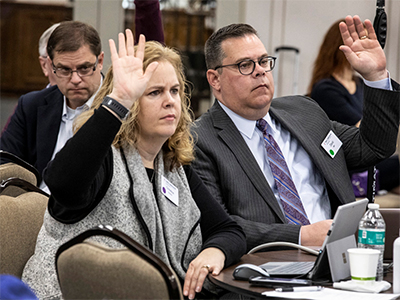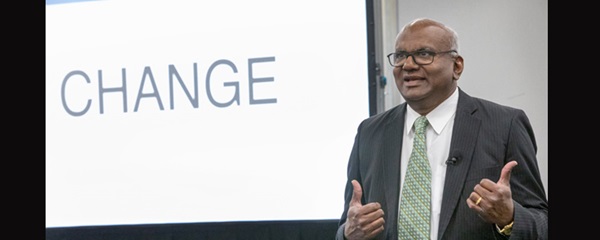Faced with the possible departure of multiple churches, United Methodist leaders are preparing the smallest denominational budget in more than 30 years.
The General Council on Finance and Administration board, by a 9-7 vote, approved proposing a 2021-2024 general church budget with the bottom line of about $413.4 million.
Your support of The World Service Fund apportionment supports program-related general agencies, which are especially important to the common vision, mission, and ministry of The United Methodist Church.
The finance agency board’s proposal represents about $80 million less than the already historically low budget of $493.8 million that the board initially planned to submit. And it is substantially less than the most recent $604 million budget General Conference passed in 2016.
What this means is that denomination-wide ministries supported by church giving — including seminaries, bishops and most of the general church agencies — will need to prepare for dramatic cuts to their work and potential layoffs.

The current proposal will be the lowest budget submitted to General Conference since 1988, according to the United Methodist Commission on Archives and History.
The finance agency board initially made plans to cut the general church budget in 2018 in hopes of keeping more funds in local churches.
Now, Tang and other board members confronted the possibility that many of those local churches might choose not to remain United Methodist.
In small-group discussions, board members, agency executives and other guests discussed potential sources for those funds. However, the board made no recommendations.
Instead, board members spent most of their March meeting discussing the financial implications of church departures on the remaining United Methodist Church.
Neither the GCFA board nor its staff know just how many churches and members will leave if a plan of separation passes. However, they know that it will affect church giving.
General Conference approves a budget that is apportioned to conferences, which in turn ask for apportionments — requested giving — from local churches. But the amounts General Conference approves are always inexact.
When General Conference delegates vote on the budget, what they are really determining is the base percentage rate used in calculating apportionments. GCFA then determines each U.S. conference’s apportionments by multiplying that base percentage rate by the conference’s net local church expenditures.
Because local church expenditures vary from year to year, GCFA is always using data from earlier years. For example, GCFA calculated the apportionments requested in 2020 using local-church expenditures from 2017.
The giving in the U.S. in turn determines the apportionments requested from conferences in Europe, Africa and the Philippines. The U.S. provides 99% of the funding for general church ministries.
If whole conferences or large numbers of local churches leave, that makes predicting apportionment giving near impossible.
excerpt from a story by HeatherHahn, multimedia news reporter, UMNS
The World Service Fund provides basic financial support to program-related general agencies, which are especially important to the common vision, mission, and ministry of The United Methodist Church. Through World Service funding, agencies support annual conferences and local congregations in living out God’s mission for the worldwide Church. General agencies also provide essential services and ministries beyond the scope of individual local congregations and annual conferences through services and ministries that are highly focused, flexible, and capable of rapid response.





